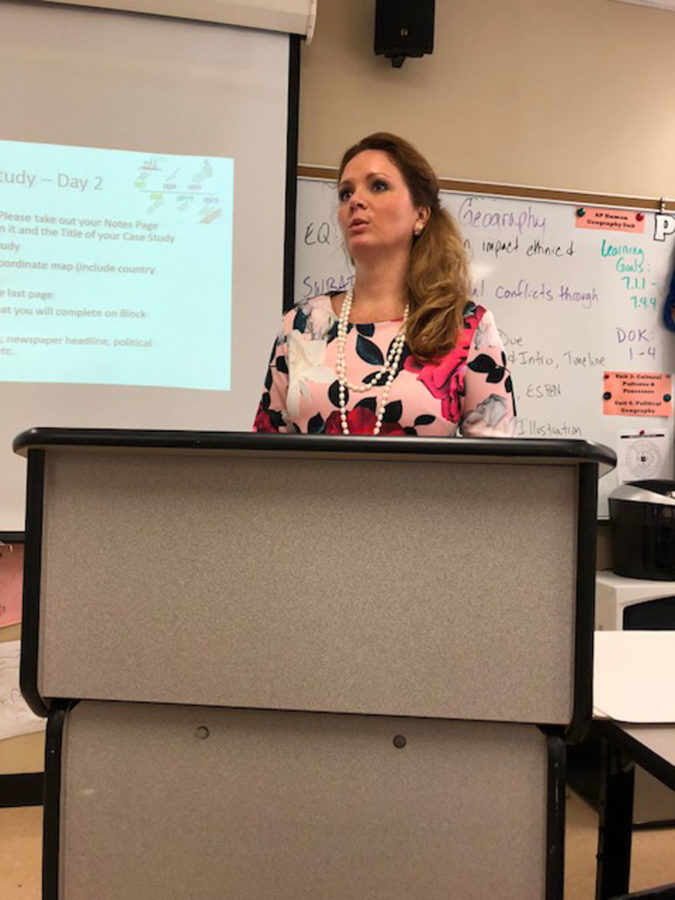POLITICS IN THE CLASSROOM: EDUCATIONAL OR DETRIMENTAL?
Opinions vary on whether teachers should share their political views in the classroom. We talked to Noles to get their take on the issue.
December 4, 2017
Although free speech is guaranteed by the U.S. Constitution, there can be limits in public schools, especially when it comes to teachers. This creates a grey area when addressing the issue about teachers expressing their political opinions to their students.
As school districts are required to provide a safe and orderly school environment, there is often a conflict with teachers’ rights to freely express opinions. However, political discussion in the classroom can actually benefit the educational experiences of students, despite the controversy surrounding it. Part of the role of public schools is to teach their students about democracy. Therefore, teaching students about the First Amendment and not applying its provisions in schools would be contradictory. Nowhere in the public school system is this more evident than in social studies classes in which controversial issues are inevitably discussed.
International Baccalaureate history teacher Mr. Jay Scofield often discusses current events in class, including a variety of controversial topics. Although he sometimes expresses his opinion, he says that he focuses on encouraging students to think for themselves.
“I frequently remind my students that I am not trying to convince them to adopt my point of view,” said Scofield. “Rather, I am trying to get them to think about current issues and develop their own issues and develop their own views: views that they can support with reason, facts, evidence and logic.”
In general, if teachers are speaking out on a matter of public concern as opposed to a personal concern, schools and courts of law will allow the expression. In Pickering v. Board of Education (1968), the Supreme Court ruled that school employees have Constitutional protection when they are speaking about issues of a public nature. As a part of this ruling, the courts also must balance a teacher’s interest in speaking versus the employer’s need to maintain an efficient workplace.
There are some states that publish documents regarding the free speech rights of their teachers, complete with examples of what is or is not allowed in the school setting. However, since school districts are responsible for controlling course content and teaching methods, and teachers are employed by the school district, ultimately it is the individual school district that greatly determines the level of free speech that classroom teachers may exercise.
Speech teacher Mrs. Dianne Newton said, “Teachers should never tell students what to think, but they should absolutely encourage them to think for themselves.”
As long as teachers do not press their views onto a student or force them to have a certain opinion on a topic, some students do not disapprove of teachers expressing their political views and others even like to take what they learn from their teacher and apply it to build their own views.
Sophomore Kevin Jackson said, “We should hear our teachers’ views. It sets students up for the future where others’ political views may be different than your own and it teaches you how to deal with them.”
Public schools serve to provide students with a peaceful environment in order to be successful. While some argue that politics in schools interfere with this aim, many teachers state their political opinions in front of their students without reflecting their views onto them. This allows students to use their teacher’s opinions to shape their own political ideologies, making political discussion in the classroom a valuable learning experience.





















